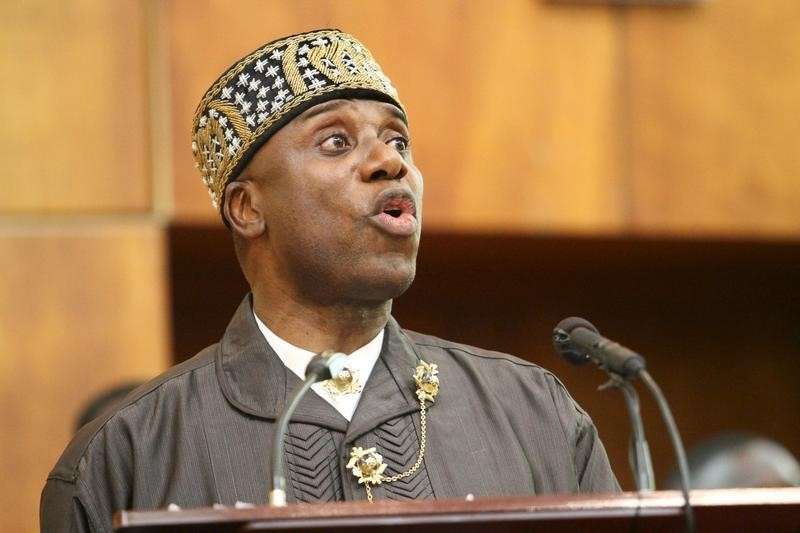With Sufficient Maritime Security, Nigerian Economy Will Blossom – Amaechi, Dakuku
The Minister of Transportation, Rt. Hon. Rotimi Amaechi, has said that the new maritime security infrastructure being built by the Federal Government, the Deep Sea Project, would be a major economic trigger for the country.
Amaechi stated this in Lagos, while speaking with the media during the World Maritime Day celebrations, with the theme, “Empowering Women in the Maritime Community”, in an occasion which 10 women were also honoured for their pioneering contributions to the maritime sector.
Ten students, who excelled in an essay competition organised by the Nigerian Maritime Administration and Safety Agency (NIMASA) as part of the activities in commemoration of the Day were awarded the Agency’s educational grants at the occasion.
Amaechi said the Deep Sea Project, which aims to secure the country’s territorial waters up to the Gulf of Guinea, would inspire greater investors’ confidence in the Nigerian maritime sector and boost the sector’s contribution to the national economy.
‘With this security infrastructure, the revenues of the agencies in the maritime sector will increase and the revenue to the country will also increase,” he stated.
“Currently, maritime sector is returning less than N100 billion; they should be doing more than that. They should be returning above N300 billion. But in terms of the economy, the maritime industry is contributing quite a lot,” the minister said.
He also spoke on the government’s plan to link the railway system to the seaports, as a way of integrating the maritime sector into the rail master structure as planned to make movements of goods to and from the ports more effective to boost the economy.
“All seaports in Nigeria must be connected by rail; that is a policy of government,” Amaechi said, adding, “We have put in place a 25-year modernisation programme for the rail system. With the master plan, we have taken rail from where the past government stopped into the seaports.
“For instance, the current Lagos-Kano rail line began from Ebute Metta. But when we came, we started another line from Ebute Metta to Apapa seaport. With this, when you bring in your goods, you turn them to the rail that takes them to the hinterland. The one from Lagos to Calabar will link the Calabar, Port Harcourt, and Onne seaports, and so on.”
The Director-General of NIMASA, Dr. Dakuku Peterside, who made a presentation on the measures by the Federal Government to tackle maritime security in the country, expressed the hope that the female gender will play a major role in the execution of the anchor security scheme, the Deep Blue Project.
“We have various components in the coordinated maritime security solution and the female gender is already part of the project,” he said.
Dakuku said, “Aside land, air, and marine-based assets being acquired, we have an intelligence gathering component where the women are already playing a major role. We recognise gender equality as one of the key platforms on which we can build a sustainable solution to security challenges in Nigerian maritime sector.”




